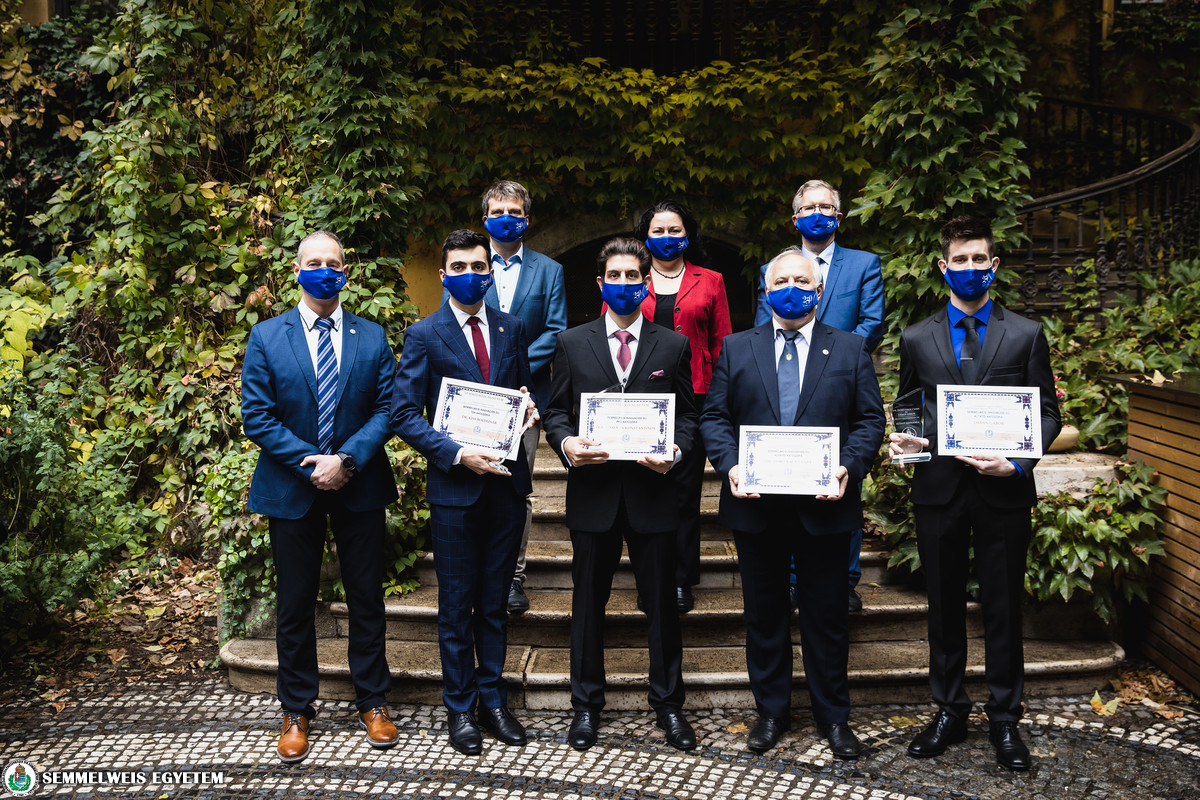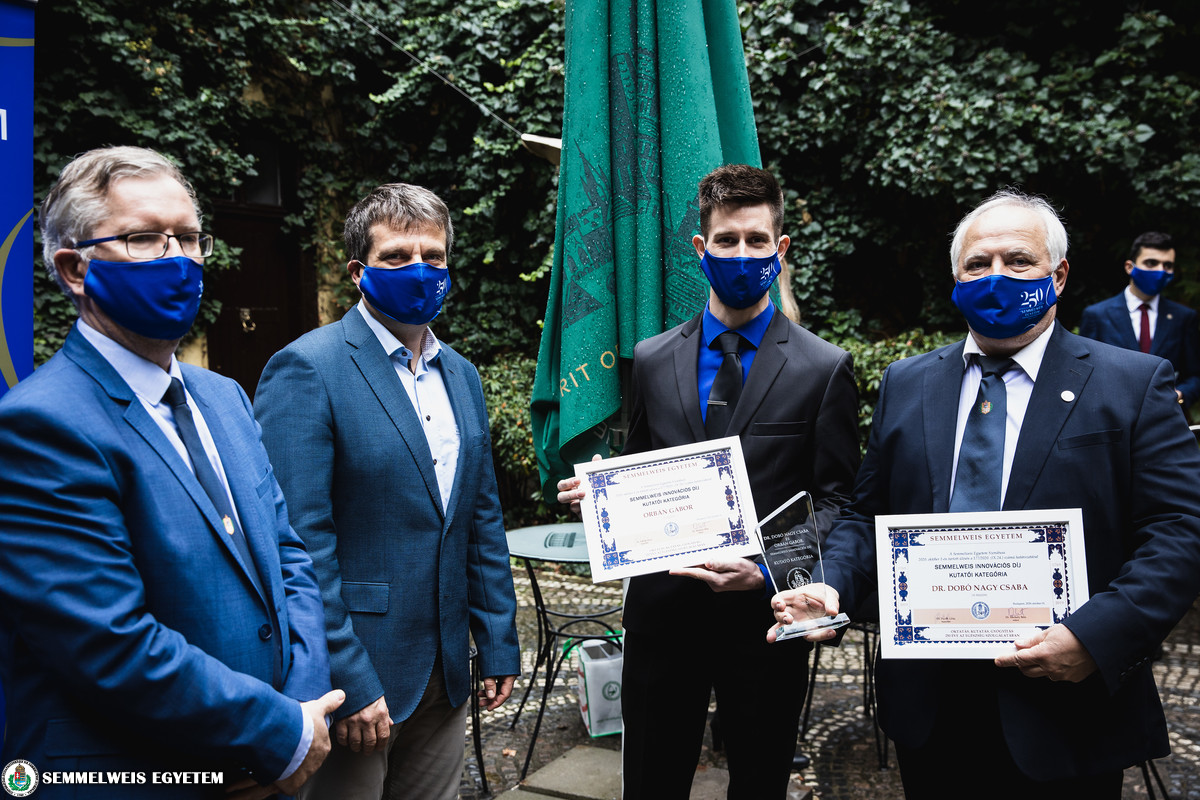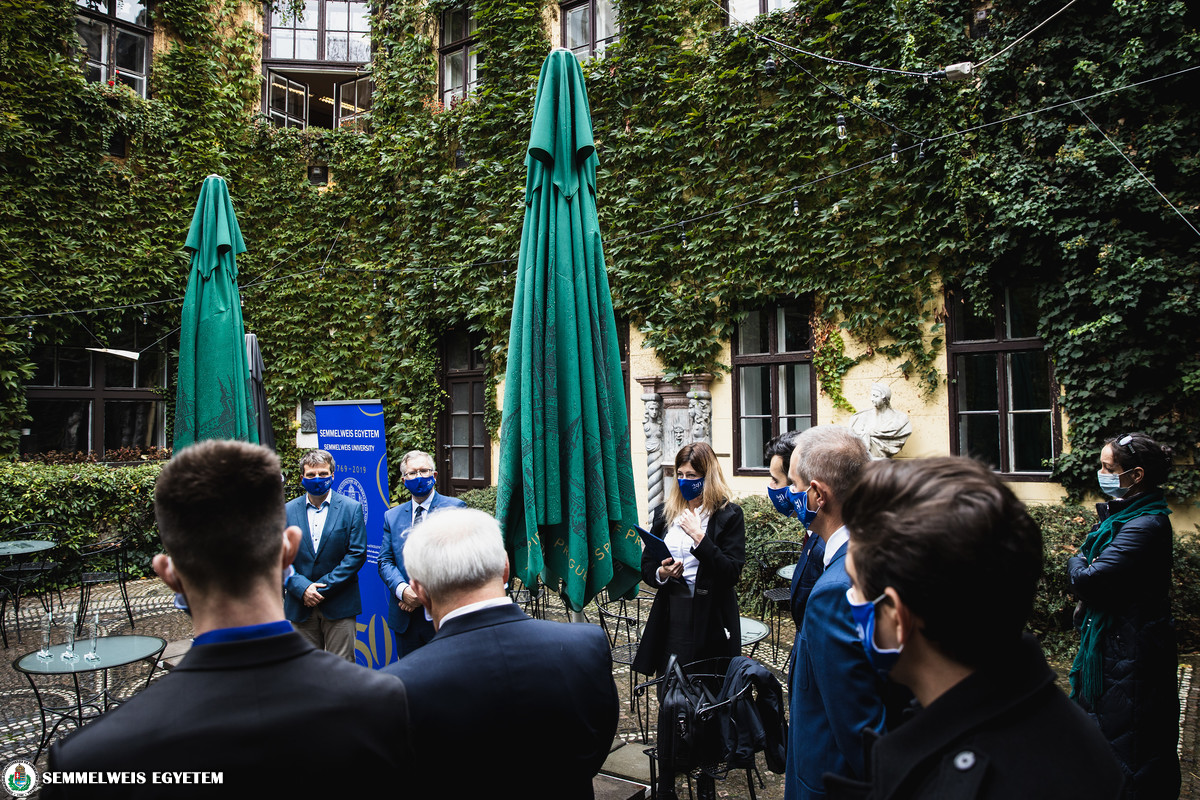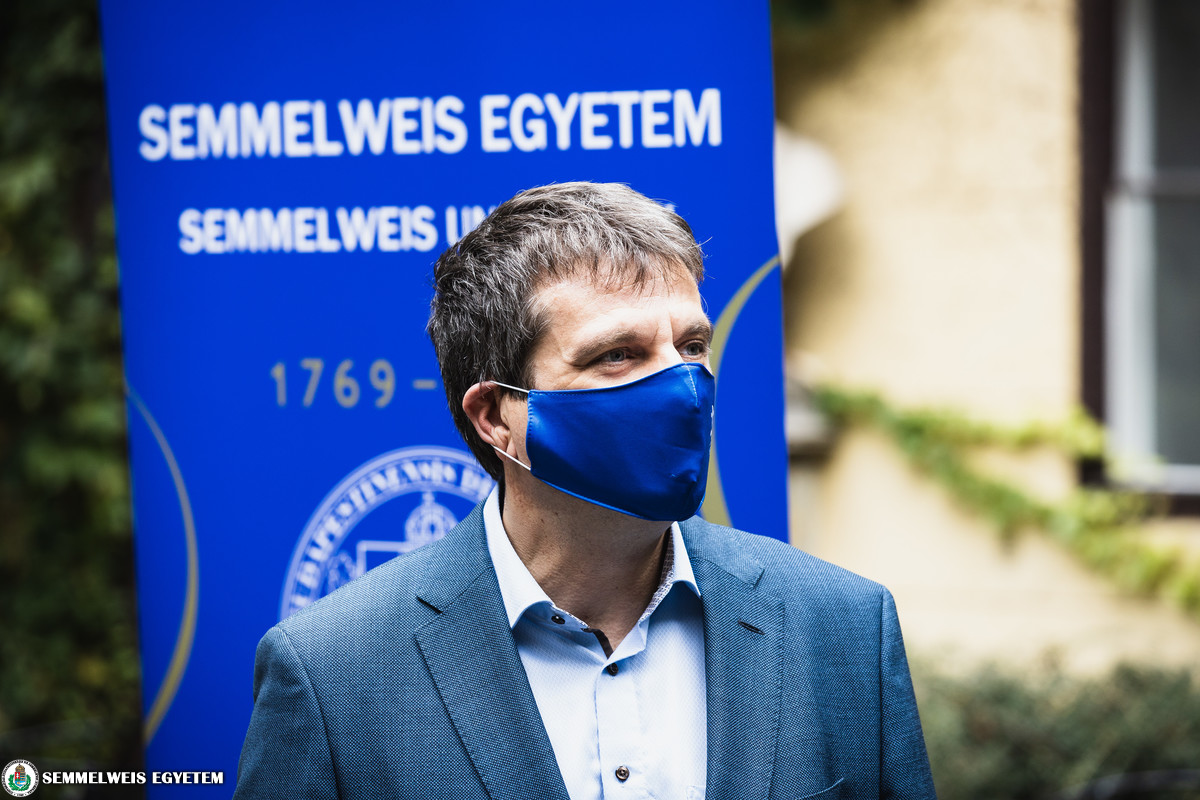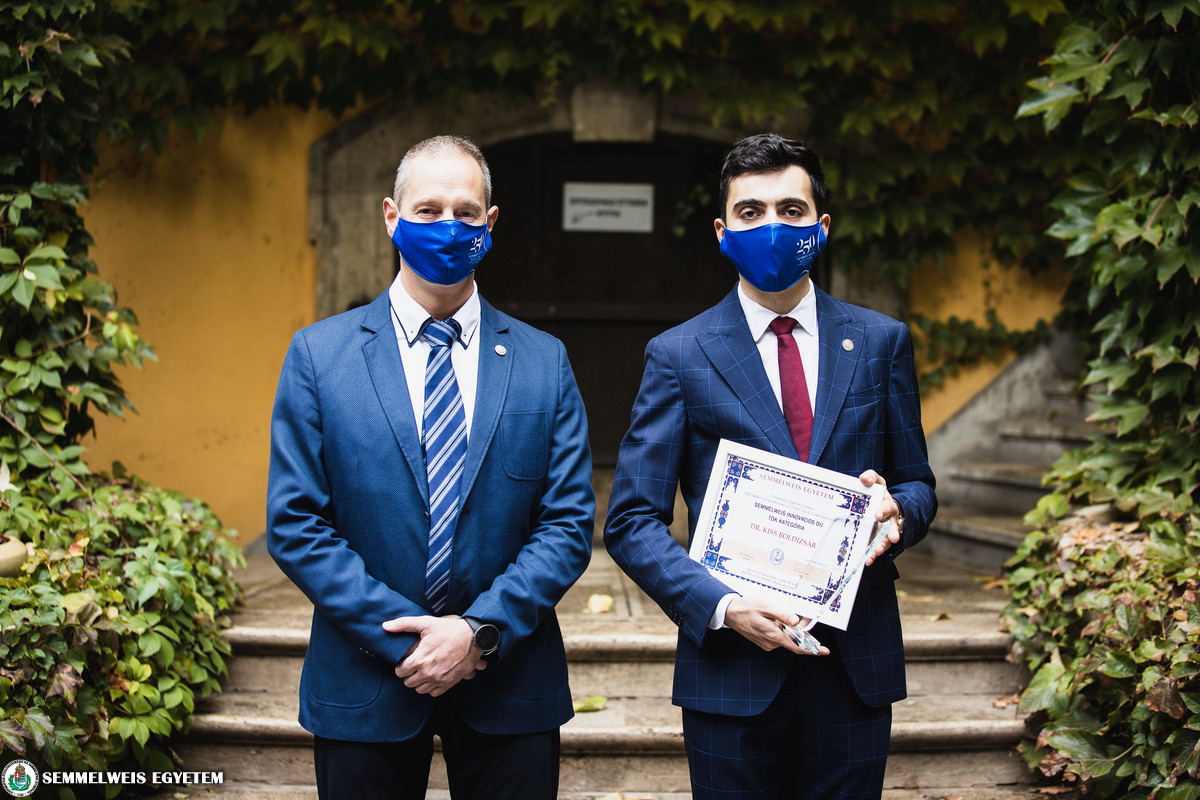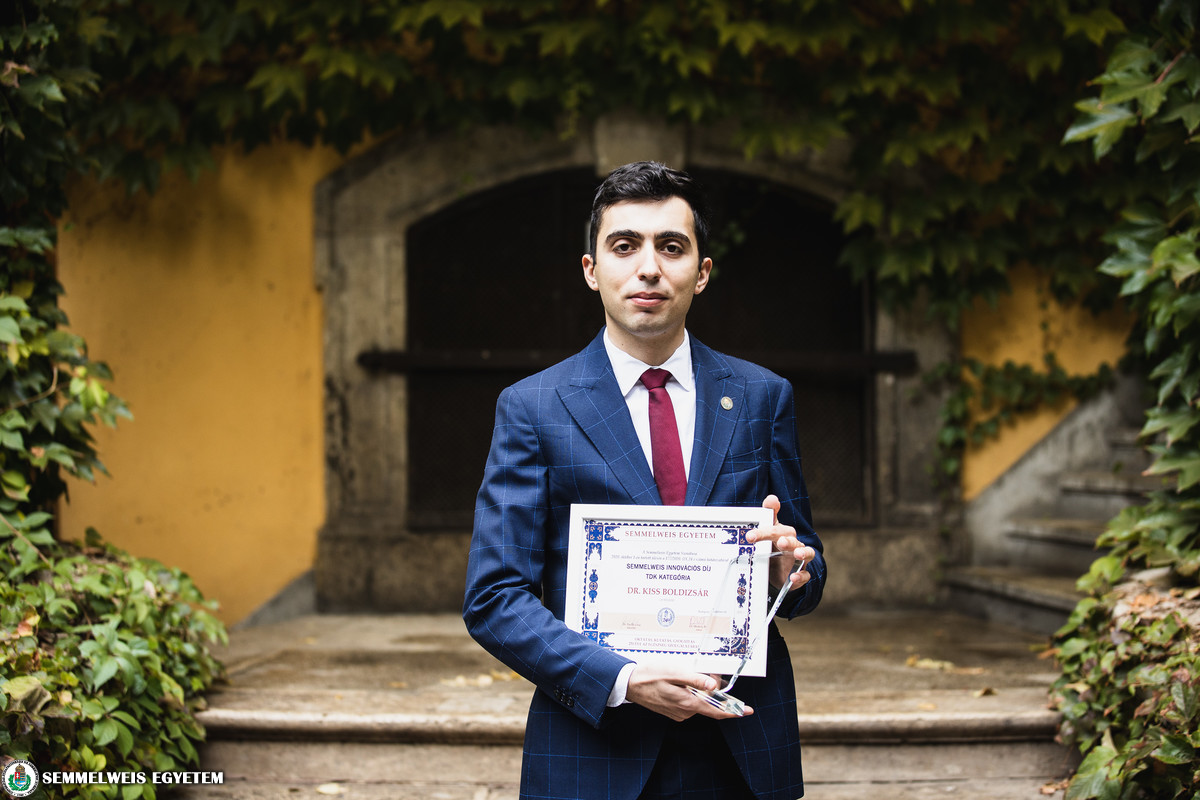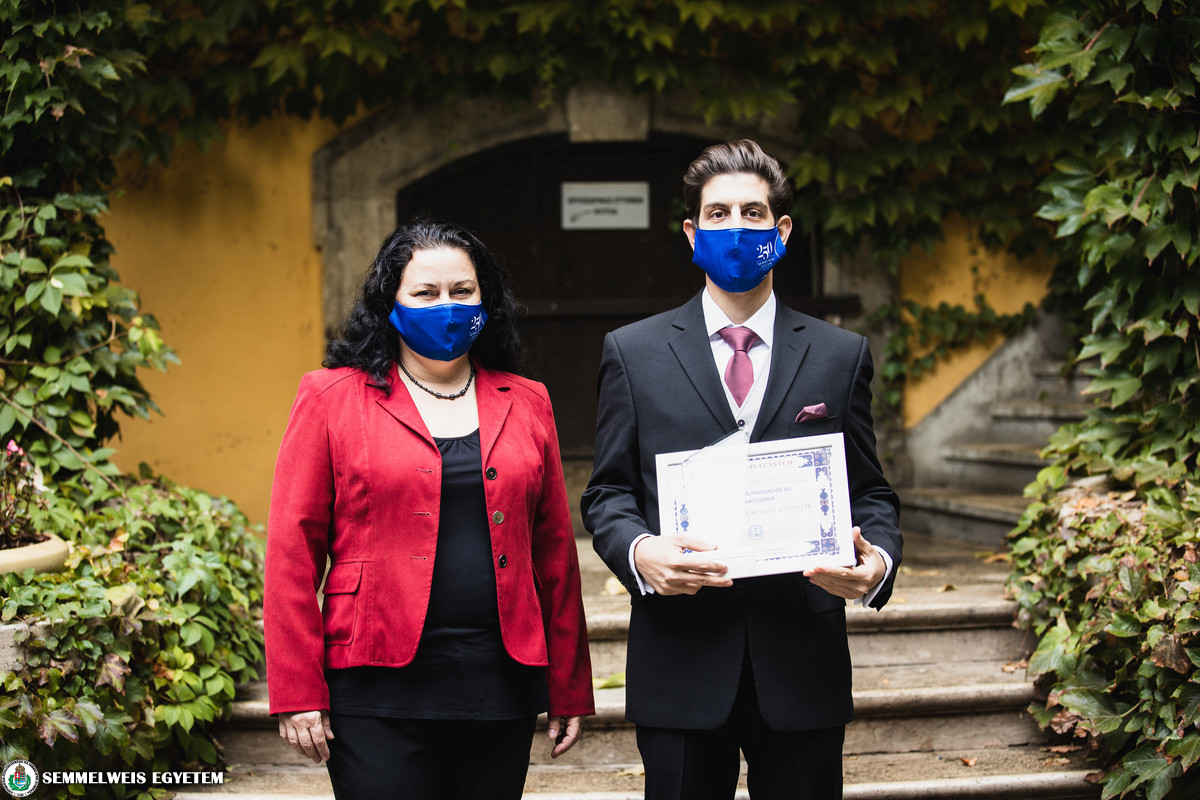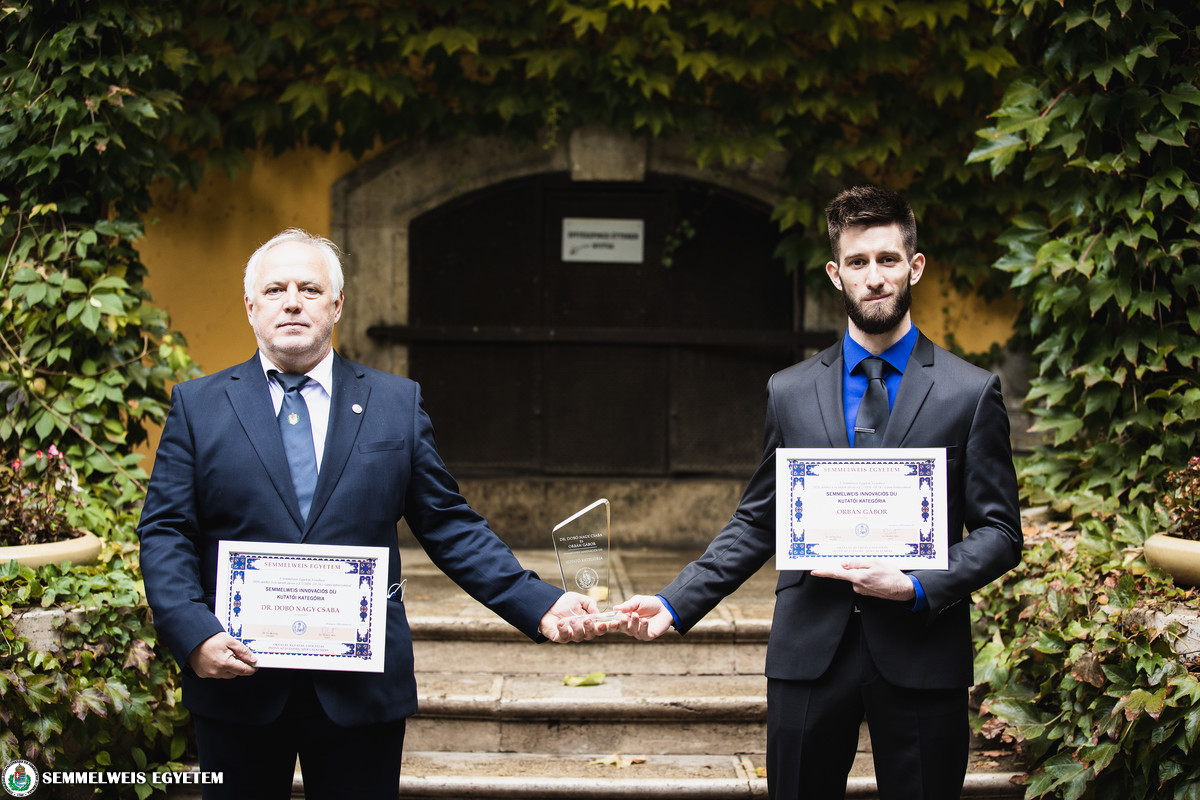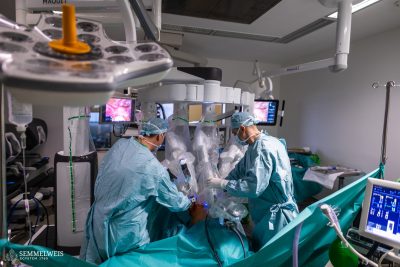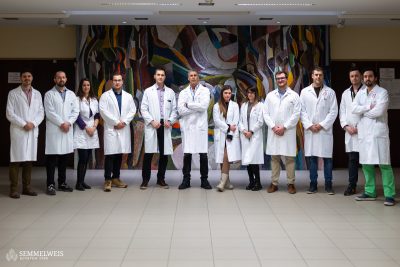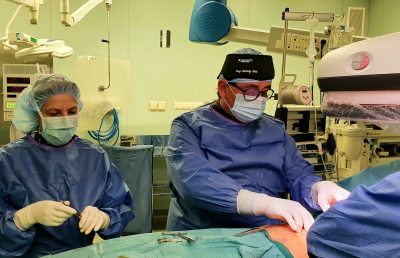Innovation awards encouraging and recognizing young researchers have been presented for the sixth time. Due to the pandemic this year, Semmelweis University’s traditional Innovation Day was cancelled and the awards were presented at a small-scale event on 5 November. Dr. Boldizsár Kiss received the award for the most innovative student scientific research project. The recipient of the most innovative PhD dissertation was Dr. Voniatis Konstantinos and the award for the most innovative research project went to Gábor Orbán and Dr. Csaba Dobó Nagy. The innovation awards were presented by Dr. Péter Ferdinandy, Vice-Rector for Science and Innovation and Dr. Gyula Péter Szigeti, Director of the Innovation Centre.
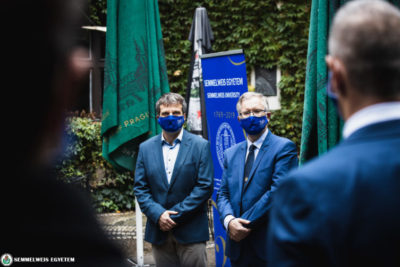 In his opening speech, Dr. Péter Ferdinandy, Vice-Rector for Science and Innovation emphasized how important it is for science to produce products and services useful to society. The Vice-Rector congratulated the winners of the Innovation Award and all the applicants, as they have already proven their awareness of the significance of innovation and have set a good example.
In his opening speech, Dr. Péter Ferdinandy, Vice-Rector for Science and Innovation emphasized how important it is for science to produce products and services useful to society. The Vice-Rector congratulated the winners of the Innovation Award and all the applicants, as they have already proven their awareness of the significance of innovation and have set a good example.
“There are still only few people who think in an innovative way in research and development, however, you have now taken the lead. Therefore, I would like to ask you to spread your approach among your colleagues as well!”, Dr. Ferdinandy said.
Dr. Gyula Péter Szigeti spoke about building Semmelweis University’s innovation ecosystem, which needs “messengers”. He emphasized the importance of incorporating innovative thinking into both research and development and education. In addition to the awardees, he highlighted the role of the project leaders and mentors in passing on an innovative approach to the younger generation.
The aim of the Semmelweis Innovation Award is for Semmelweis University to recognize the activities of researchers, doctoral candidates, and doctoral students who have developed outstanding innovative solutions during their research projects related to the university.
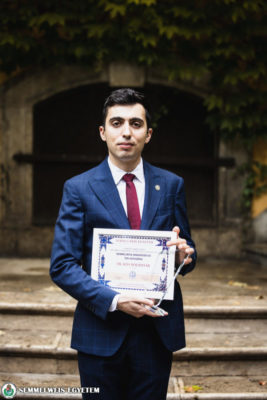 Dr. Boldizsár Kiss (Heart and Vascular Centre, Department of Cardiology) set out to develop a PCA (post cardiac arrest) scoring system that would reliably estimate the risk of death and neurological outcome in case of resuscitated patients using the data quickly available at the time of hospitalization in the intensive care unit. The free app would assist doctors in their daily work.
Dr. Boldizsár Kiss (Heart and Vascular Centre, Department of Cardiology) set out to develop a PCA (post cardiac arrest) scoring system that would reliably estimate the risk of death and neurological outcome in case of resuscitated patients using the data quickly available at the time of hospitalization in the intensive care unit. The free app would assist doctors in their daily work.
“The Forecast of Mortality Risk Early in the post Cardiac Arrest Syndrome Therapy (FORECAST) scoring system divides affected patients into subgroups on a scale of 0-16 based on risk factors. With the help of the app it would be easier to screen for patients requiring intensive care of low or high progression.”, he said.
When designing the scoring system, he focused on the early factors that are easy to identify after successful resuscitation. One such factor is time: how quickly the ambulance got to the patient, how long resuscitation took. However, underlying conditions, other risk factors and the patient’s age are also important.
“After hospitalization the cause of the cardiac arrest has to be defined as further therapy depends on it. The information provided by the scoring system enables doctors to inform relatives only within a few hours after the patient’s admission to the ICU about possible perspectives and the expected outcome with optimal care. The analysis of this information may help monitor and improve patient care. Furthermore, analysing the information will enable the identification of target groups requiring special primary prevention.”, he explained.
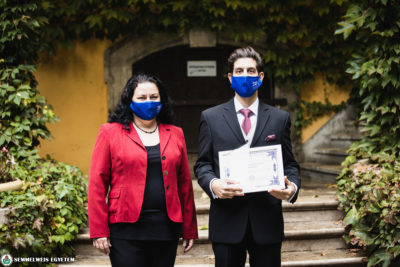 The winner of the 2020 Innovation Award’s PhD category is Dr. Voniatis Konstantinos, who works at the Nanochemistry Research Group of Semmelweis University’s Department of Biophysics and Radiation Biology and at the Department of Surgical Research and Techniques. Semmelweis University sees a great business potential in his project, so it has been classified as business secret. Currently, the inventor is still working on his project, which will be made public after patent application.
The winner of the 2020 Innovation Award’s PhD category is Dr. Voniatis Konstantinos, who works at the Nanochemistry Research Group of Semmelweis University’s Department of Biophysics and Radiation Biology and at the Department of Surgical Research and Techniques. Semmelweis University sees a great business potential in his project, so it has been classified as business secret. Currently, the inventor is still working on his project, which will be made public after patent application.
Dr. Nagy Csaba Dobó and Gábor Orbán (Department of Oral Diagnostics), the winners of the most innovative research project are working on a measuring device offering a unique diagnostic opportunity for dental practice to calculate dentin thickness.
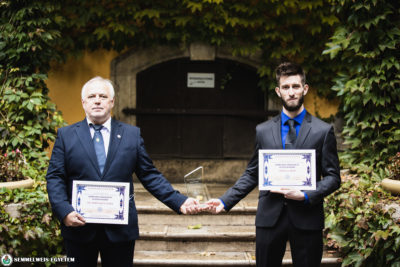 “During a dental intervention, the thickness of the remaining dentin layer after layer removal (drilling) depends greatly on the fine motor movement of dentist’s hand and the dentist’s experience. It is common practice not to make the layer thinner than 0.5 mm, because drilling into the pulp has serious consequences: a simple dental filling procedure can easily turn into root canal treatment.”, they explained.
“During a dental intervention, the thickness of the remaining dentin layer after layer removal (drilling) depends greatly on the fine motor movement of dentist’s hand and the dentist’s experience. It is common practice not to make the layer thinner than 0.5 mm, because drilling into the pulp has serious consequences: a simple dental filling procedure can easily turn into root canal treatment.”, they explained.
The measuring device they have developed is to prevent this by enabling the dentist to measure the thickness of the dentin layer, thus preventing the pulp to be exposed. The device may be an important tool in every dental practice.
“After the first successful wisdom tooth preparation experiments, we started the development of the technology. The development of our own electronic design is underway as well as the that of the data processing and display software thanks to support of Semmelweis University’s Innovation Fund 2019 application.”, they said.
The innovation awards were presented by Dr. Péter Ferdinandy and Dr. Gyula Péter Szigeti.
Bernadett Bódi
Photo: András Dimény
Translation: Ágnes Raubinek
